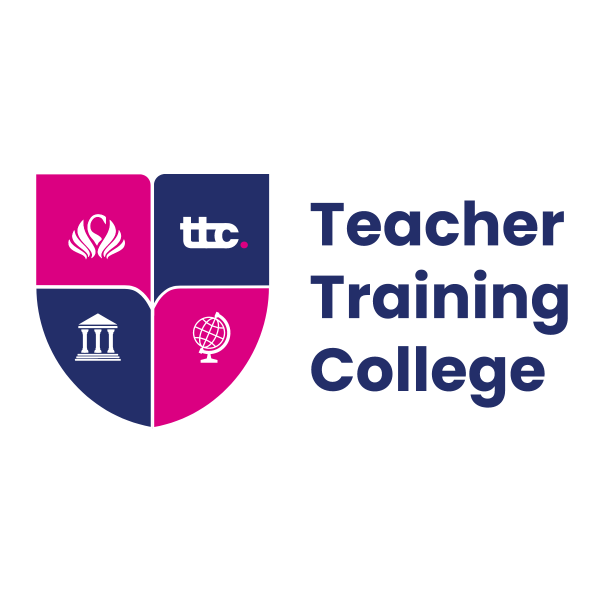So… you’re considering a career in teaching but not sure if you really need that PGCE qualification?
We hear you – it’s an extra year of studying on top of your undergraduate degree. But the truth is gaining that postgraduate certificate in education is an absolute must if you want to secure a role as a qualified teacher.
In this blog, we’ll explain why a PGCE matters so much for trainee teachers looking to get qualified. We’ll cover what it involves, the different routes available, and ultimately why it’s one of the most popular routes into teaching.
What is a PGCE? Exploring teacher training
The Postgraduate Certificate in Education (PGCE), is one of the most popular academic qualifications for teaching in the UK
Available across England, Wales and Northern Ireland, PGCE courses are a postgraduate qualification designed to boost your academic training and prepare you for life in the classroom. They usually take one year full-time or two years part-time, so securing a place can be pretty competitive.
You only technically need a course offering Qualified Teacher Status (QTS) to teach in England. However, a PGCE course increases your academic know-how and gives you the flexibility to teach internationally, as it is an internationally recognised qualification. The Scottish equivalent is the Professional Graduate Diploma in Education (PGDE).
A PGCE blends solid classroom placements with learning the theory behind teaching with experienced staff. Most PGCE courses run from September to July, taking nine months full-time, with part-time and distance options too. Courses can be university or school-led, but the majority lead to that coveted QTS, making you eligible to teach in various countries.
Subject-wise, there are teacher shortage in subject areas like maths and physics, while others like P.E. are more competitive. Do your research on the subjects and be open to looking nationwide for places. If your degree doesn’t directly match your intended teaching subject, you might need to do a subject knowledge booster course first, adding a bit more study time pre-PGCE.
PGCE and Your Teaching Career
Teaching is fast becoming an evidence-based profession. This means all teachers are expected to engage with academic research within the education system and this will be demanded of you if you want to progress in a career in education.
PGCE study provides training for this and gives you the academic skills to not only survive but thrive in not only your first teaching job by for the whole of your teaching career.

Types of PGCEs
In the UK, there are several types of PGCE (Postgraduate Certificate in Education) courses available, catering to different teaching levels and subject specialisms.
In England a PGCE may be led by a:
- higher education institution (HEI)
- school/charity/multi-academy trust (MAT)
- consortium of schools in partnership with the HEI, such as the Teacher Training College
The main types of PGCE courses include:
Focuses on teaching children aged 3 to 11 in primary schools, covering all key curriculum areas.
Prepares graduates to teach specific subjects (e.g., Maths, English, Science, History, etc.) to students aged 11 to 16 (or 18 in some cases) in secondary schools.
Designed for those interested in teaching in colleges or adult education settings, typically focusing on vocational subjects or specific skills.
This route combines classroom teaching experience with academic study, allowing trainees to learn directly within a school setting.
Similar to School Direct, SCITT programmes are delivered by schools or groups of schools in partnership with a university or other accredited provider.
Some universities offer PGCE courses that specialize in areas such as Special Educational Needs (SEN), Early Years, or specific subject areas within secondary education.
It’s important to note that these are general categories, and specific PGCE courses may vary in their structure and focus depending on the provider and location.
Additionally, there are variations and alternative routes to qualifying as a teacher in the UK, such as through Teach First or the Assessment Only route, which do not always lead to a traditional PGCE qualification but still result in Qualified Teacher Status (QTS).

What does a PGCE course involve?
This type of postgraduate qualification typically involves a combination of academic study and practical teaching experience. During a PGCE course, you’ll deepen your understanding of educational theory and practice, focusing on areas such as curriculum development, teaching methods, assessment strategies, and classroom management.
You’ll also undertake placements in schools or educational settings to apply your learning in real classroom environments, gaining hands-on experience under the guidance of experienced teachers.
Throughout the course, you’ll receive support and feedback to help develop your teaching skills and prepare you for a successful career in education. PGCE programmes are designed to equip you with the knowledge, skills, and confidence needed to inspire and support learners of all abilities.
What will you learn during a PGCE?
During this teacher training course, you’ll learn about educational theories, curriculum development, teaching strategies, valuable skills, the national curriculum, assessment methods, and classroom management techniques. The programme will also cover topics such as inclusion and diversity in education, safeguarding, and professional conduct.
Through practical teaching placements in schools or educational settings, you’ll apply your knowledge and degree in real-world classroom environments, gaining valuable hands-on experience and developing your teaching skills. You’ll receive guidance and feedback from experienced mentors to help you refine your teaching practice and adapt to different learning needs.
By the end of the PGCE, you’ll be equipped with the knowledge, skills, and confidence to effectively plan and deliver engaging lessons, assess student progress, and create supportive learning environments that cater to diverse student populations.
What will you learn during a PGCE?
A PGCE is ideal for individuals who are passionate about education and aspire to become qualified teachers in the UK. It is suitable for graduates from various academic backgrounds who wish to pursue a career in teaching at primary, secondary, or further education levels. Whether you’re looking to change careers or enhance your skills in education, a PGCE provides the necessary training and qualifications to enter the teaching profession.
This programme is especially beneficial for those who enjoy working with young people, are committed to lifelong learning, and have a desire to make a positive impact on the lives of students. If you’re enthusiastic about education and dedicated to helping others succeed, a PGCE could be the right path for you.

What are the entry requirements to study a PGCE?
To study a PGCE (Postgraduate Certificate in Education) can vary depending on the university and the specific course. However, common entry requirements typically include:
A good undergraduate degree (usually at least a 2:2 or equivalent) in a relevant subject for secondary teaching or any subject for primary teaching.
For primary teaching, you will typically need GCSEs (or equivalent qualifications) in English, Mathematics, and Science at grade C/4 or above. For secondary teaching, you may need GCSEs in the subject you wish to teach at grade C/4 or above, in addition to English and Mathematics.
All applicants must undergo a criminal record check through the DBS.
In England, you may need to pass professional skills tests in literacy and numeracy before starting your PGCE.
Some courses may require or prefer candidates to have relevant experience working with children or young people in educational settings.
You will typically need to provide references, which may include academic and/or professional references.
It’s important to check the specific entry requirements of the PGCE course you are interested in, as they can vary between institutions and may have additional requirements or recommendations based on the subject and level of teaching you wish to pursue. Additionally, there are alternative routes in to teaching, such as School Direct and Teach First, which may have different entry criteria.
What is the cost of a PGCE?
The cost of a PGCE (Postgraduate Certificate in Education) can vary depending on several factors, including the university, the specific course, whether you’re studying full-time or part-time, and your fee status (UK/EU or international student). Here are some general considerations regarding the cost of a PGCE in the UK:
For UK and EU students, tuition fees for a PGCE course can range from approximately £9,250 to £14,000 per year for full-time study. Part-time study may have pro-rata fees based on the full-time rate.
There are various funding options available to help cover the cost of tuition fees for a PGCE. These may include student loans (subject to eligibility), scholarships, bursaries, and training grants. Bursaries and scholarships are often available for certain subjects or for those training to teach in priority areas such as STEM subjects or shortage subjects.
In addition to tuition fees, you may need to budget for other expenses such as accommodation, living costs, travel expenses for teaching placements, course materials, and any DBS (Disclosure and Barring Service) checks required.
If you are an international student, tuition fees for a PGCE can be significantly higher compared to UK/EU fees. International students should check with individual universities for specific fee information for international applicants.
It’s important to research and consider the total cost of undertaking a PGCE, including tuition fees and living expenses, and explore available funding options and financial support. Universities often provide detailed information about tuition fees and funding opportunities on their websites or through their admissions offices.
What's the difference between school-led and university-led PGCEs?
University-led PGCE:
- Training is primarily delivered by a university.
- Trainees attend lectures, seminars, and workshops at the university.
- Teaching practice (placements) is arranged by the university in schools.
- Leads to a PGCE qualification and Qualified Teacher Status (QTS).
School-led (SCITT) PGCE:
- Training is delivered by schools or school partnerships.
- Trainees spend significant time in schools learning from experienced teachers.
- Programme designed and delivered by schools with input from a university or provider.
- Leads to a PGCE qualification and QTS upon completion.
University-led PGCEs focus on university-based theoretical learning with school placements arranged by the university. School-led (SCITT) PGCEs emphasize practical, school-based training with teaching experience directly in schools.
Both pathways lead to qualified teacher status and a PGCE qualification, catering to different learning preferences and career goals. Prospective teachers should consider the structure and content of each programme to choose the best fit for their training needs, whilst developing their own teaching style.
Study with the Teacher Training College
Our unique teacher training qualification PGCE with QTS combines school-based learning with a university-led programme. Throughout the qualification, you’ll be based in a school, receiving support from both a Personal University Tutor and an in-school mentor.
The programme covers Primary (5-11 and 7-11 age ranges) and various subjects at Secondary (11-16, 11-18 age ranges), including specialised 14-19 subjects typically taught in Key Stages 4 & 5.

Utilising online teaching materials, webinars, and live tutorials, the qualification provides practical learning experiences. Collaborate with fellow trainee teachers in weekly online sessions and termly educational conferences.
Applicants also have the opportunity to teach in independent schools, with a broad network of partner schools offering training locations to suit you. Register your interest now with one of the UK’s leading training providers here.
Commonly asked questions:
You can apply for postgraduate teacher training courses starting in September 2024 from 10 October 2023 to 17 September 2024.
No role is guaranteed, but a PGCE with QTS will grow your potential to get your foot on the teaching ladder and begin your induction and ECT training.
Our staff are always happy to provide advice and support when it comes to making these key decisions or you can seek further advice here.
Yes, currently you would need a degree to begin any PGCE course.
Don’t forget to check out our information webinars with Sean Breslin, which you can watch on Eventbrite.
If you would like any more information, please do not hesitate to contact us by email at info@theteachertrainingcollege.co.uk or call us on 0330 390 0529.




